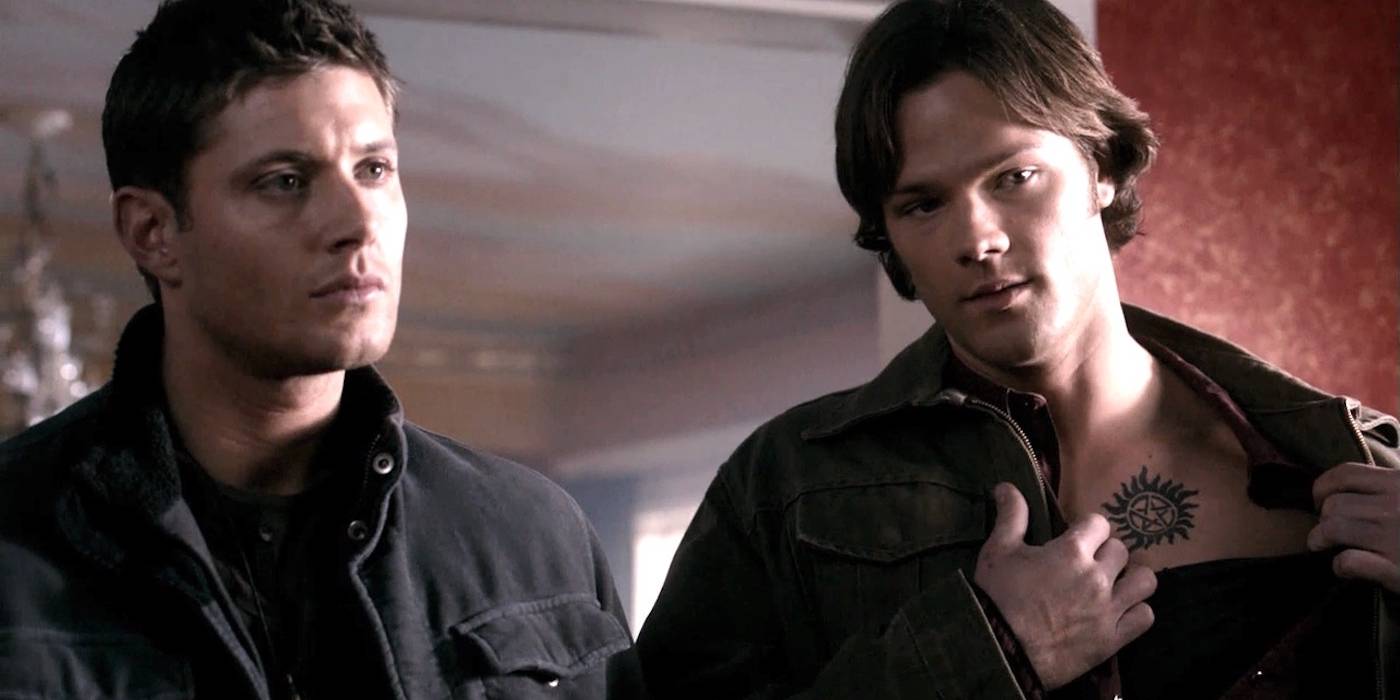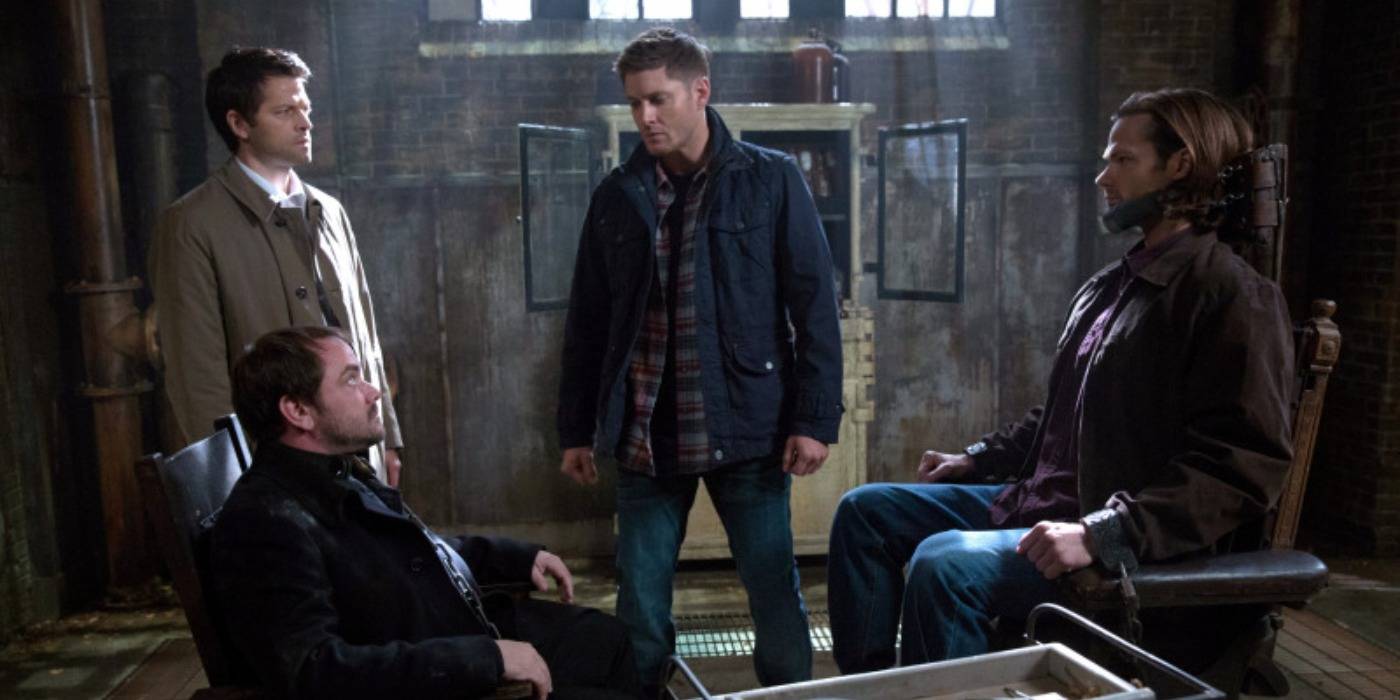Why Supernatural Was So Popular (& For SO Long)

Supernatural‘s immense popularity defies convention for a TV show of its ilk – how did the Winchester brothers stay on top for so long? In an industry where landing a second season is a Herculean task for all but the very biggest TV productions, The CW’s Supernatural is an oddity. Premiering in 2005 (on The WB for its first season), Eric Kripke’s Supernatural earned itself one green-light after another, racking up a grand total of fifteen seasons across the same number of years – the kind of run typically reserved for reality TV, sitcoms and talent shows.
When Supernatural eventually bowed out in 2020, the end came on Sam and Dean’s terms. There was no abrupt cancelation, no begrudging mini-season to tie off loose ends, and no half-hearted rush to the finish line. Supernatural‘s series finale didn’t find anything even close to universal acclaim, but less than two years down the line, a spinoff has already been made (The Winchesters) and talk of a revival is non-stop. Supernatural remains a cultural beacon of the fantasy genre, just as popular now as it was in the beginning.
Part of the reason Supernatural has proven harder to kill than the Winchesters themselves is its passionate fan base, who refused to let their show perish – even when times got tough. But in a saturated, competitive genre where audience attention is constantly being pulled in more directions than Dean’s body during a session with Alastair, Supernatural‘s 15 seasons are still a remarkable exercise in longevity. How did the Winchester Express chug on so long, and why did so many fans stay aboard even through the dark tunnels?
Supernatural’s Best Weapon: Sam & Dean Winchester
When all is said and done, there are two big reasons behind Supernatural‘s success: Sam Winchester and Dean Winchester. When Supernatural first landed in 2005, the paranormal-monster-of-the-week concept was far from revolutionary. Supernatural‘s production values weren’t significantly greater than its contemporaries, and the writing wasn’t exactly hitting Breaking Bad levels of nuance. But Supernatural had the Winchester brothers – a winning marriage of characterization and casting.
Eric Kripke’s sibling partnership already looked good on paper – meat-n-potatoes Dean and reluctant younger brother Sam, tortured by their mother’s death and vengeful absentee father, destined to hunt monsters forever. Then Supernatural benefited from one of those rare moments where the stars simply align. Jensen Ackles was cast as Dean, and Jared Padalecki as Sam. Had either of those actors eaten something sketchy before casting day and missed their audition, there’s a good chance this article would be called “Why Supernatural Was Canceled After Season 3?”
Ackles and Padalecki’s chemistry takes no time at all to solidify. Supernatural is immediately compelling because of its leading duo and their topsy-turvy, strangely relatable, predictably unpredictable relationship. The pairing is Supernatural‘s engine, but what kept that engine running for another fourteen seasons is how Sam and Dean evolve as naturally as genuine brothers would. You can feel Ackles and Padalecki constantly discovering their characters, finding new qualities and quirks that ensure Sam and Dean’s dynamic remains effortlessly entertaining with just the right amount of “real.” Because that bond comes so easily and naturally (and because Supernatural‘s lead actors are so keen to dig deeper into their fictional alter egos with each passing season), Sam and Dean still haven’t outstayed their welcome 15 years later.
One way to produce long-running TV is making onscreen families feel like an extension of the audience’s own family – hence why sitcoms and soap operas enjoy seemingly endless popularity. Tuning in each week becomes a reassuring comfort that transcends the odd duff storyline or middling season. Supernatural managed to recreate that sensation in the context of ghosts and demons, and not since Buffy the Vampire Slayer had a fantasy TV series fostered such a personal relationship between character and audience.
Characters Kept Supernatural Fresh (When Stories Didn’t)
Okay, so Sam and Dean didn’t do it alone. As loyal as Supernatural‘s fan base may be to its intrepid Impala-riding investigators, there’s a broad consensus that season 5 represents a creative peak, and that latter seasons are inferior to those baby-faced golden years. While you could certainly argue that the Winchesters ran out of road finding new plots and villains, Supernatural carved out a special knack for introducing brilliant supporting characters who complimented Sam and Dean beautifully and become beloved in their own right, and this constant stream of solid cast additions played a major role in keeping Supernatural alive for so long.
Some may argue that Supernatural should’ve ended with season 5, but Misha Collins’ Castiel – who would ultimately grow into a third lead – only joined one year prior. Mark Sheppard’s Crowley didn’t come into his own until season 6, Charlie first appeared in season 7, Rowena in season 10, and Jack during season 12. Then you’ve got Bobby, the Wayward Sisters, Gabriel, Lucifer and Mary. If ever there was a lack of enthusiasm about Supernatural‘s plot lines in later seasons, those misgivings were overshadowed by the consistently high quality of characters either joining the Winchesters or meeting them in battle.
So many TV shows struggle when it comes to replacing cast members, with newer faces never quite matching up to the old guard. Supernatural never suffered that problem (though the story would’ve been different if Sam, Dean or Castiel had departed), and if that ability to conjure great new characters from thin air had been lost, the end might’ve come a lot sooner than season 15.



















